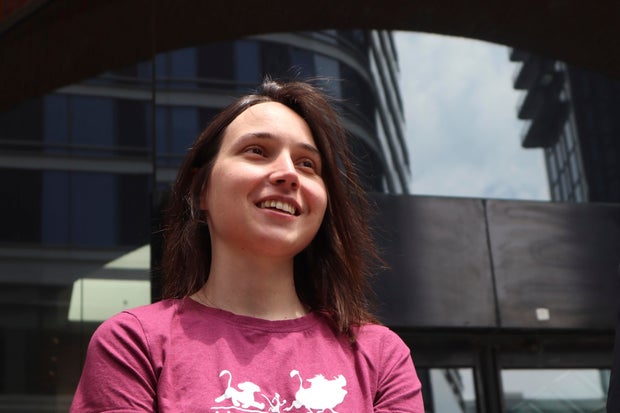Our Terms & Conditions | Our Privacy Policy
Russian scientist from Harvard accused of smuggling frog embryos is released from federal custody
A Harvard scientist who spent months in custody on a federal smuggling charge was released Thursday after a bail hearing in Boston.
Russian citizen Kseniia Petrova was stopped in February at Boston’s Logan Airport by Customs and Border Protection agents as she returned on a flight from Paris. The Justice Department said in a press release that a search of her bags turned up undeclared frog embryos and embryonic samples. Petrova initially denied carrying biological materials but later admitted to it, the Justice Department said.
According to a court filing by Petrova’s attorney, the materials were “non-hazardous, noninfectious, and non-toxic” and she was transporting them at the request of the leader of a research group at Harvard Medical School.
“Having no prior experience transporting biological samples,” her attorney wrote, she “was unfamiliar with U.S. customs requirements regarding these samples. She simply placed the samples in her luggage and did not declare them to CBP at the time of her entry.”
But prosecutors allege that texts on her phone from a colleague show that she had been informed she would need to declare the materials.
Harvard University researcher Kseniia Petrova, 30, smiles after being released on bail from federal custody at the John Joseph Moakley United States Courthouse in Boston on June 12, 2025.
Leah Willingham / AP
Upon discovery, CBP canceled Petrova’s visa and she was taken into custody. She was sent to an ICE detention facility in Vermont and then transferred to another ICE facility in Louisiana. In May, Petrova was released from ICE custody, but remained in the custody of the U.S. Marshals Service, according to The Associated Press.
Petrova was a researcher at Harvard’s Kirschner Lab, which focuses on cell and development biology, including cancer research. Colleagues testified on her behalf, saying she is doing valuable research and “excellent science,” AP reported.
“It remains difficult to understand why someone like Kseniia had to spend four months in jail. She poses no danger and has deep ties to her community,” Petrova’s attorney, Gregory Romanovsky, wrote in a statement to CBS News.
“Her work has the potential to improve lives around the globe — including here in the United States,” he added.
Petrova’s immigration case is ongoing, but Romanovsky said that she hasn’t yet decided whether she will stay in the U.S. if she is permitted to.
CBS News has also reached out to Harvard for comment..
A probable cause hearing is set for June 18.
More from CBS News
Images are for reference only.Images and contents gathered automatic from google or 3rd party sources.All rights on the images and contents are with their legal original owners.



Comments are closed.